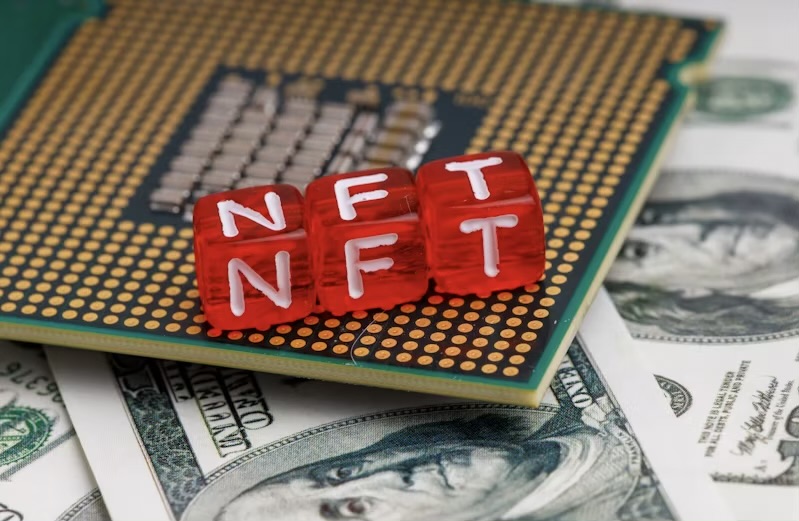
Non-fungible tokens (NFTs) are a type of investment asset.
The digital world continues to expand and change as new developments are made.
With the rise of smartphones, people are constantly connected to the online and digital spheres.
One digital trend includes non-fungible tokens (NFTs) in the buying, selling, and owning digital assets.
NFTs can include music, videos, art, and virtual real estate.
Many investor portfolios have an increasing number of these tokens.
These digital assets require as much estate planning focus as traditional assets like bank accounts, real estate, and retirement funds.
Because non-fungible tokens reside on the blockchain, there are greater complications related to accessing, valuing, and transferring them.
Those who want to leave their NFTs to a charity or a loved one should address the technical and legal requirements in their estate plans.
I attended the Kansas City Estate Planning Symposium last Thursday and Friday, with an entire block of instruction on estate planning for this new class of assets.
And, my, is it a complex and evolving body of law.
Yikes!

NFTs come with various estate planning challenges.
Non-fungible tokens are stored on a blockchain.
This blockchain is proof of ownership for the unique item.
Unlike stocks and cryptocurrencies, these assets are not interchangeable.
Each non-fungible token is unique, with its value influenced by its creator, rarity, and market demand.
Access to NFTs is controlled through passwords, private keys, and digital wallets.
These assets could be lost forever if the executor of the estate or the heirs of the estate do not know where the credentials are stored or how to utilize the credentials.
Yikes!
In addition to securing the transfer of NFTs, owners must also navigate the challenges associated with valuation.
The value of NFTs can be hard to appraise and can oscillate significantly.
Because the IRS classifies non-fungible tokens as property, they can trigger taxes when transferred.
You will need to give attention to the legal and technical aspects of the assets to develop a sufficient estate plan.
You cannot plan for something when you forget you own it.
To begin your planning, you must inventory your digital assets.
You should include the assets, the platforms where they are stored, and instructions for accessing the hardware devices or associated wallets on this list.
If your executors do not have this information, they will not know about the asset or be able to access it.
After creating the inventory, you should address your digital assets in your trust or last will and testament.
Using only a generic clause could be insufficient for directing distribution or granting access to these NFTs.
You may also consider naming a digital executor to secure the smooth transfer of the assets.
When choosing a digital executor for your NFTs, you should select an individual familiar with blockchain technology.
A trust can be a helpful estate planning tool for owners of NFTs.
Why?
Trusts provide privacy, avoid probate, and allow for detailed instructions for managing fungible tokens.
Trusts can also minimize taxes for the value volatility of NFTs and support ongoing management.
When estate planning for non-fungible tokens, you should comply with the terms of service for any relevant platforms.
You should consult an attorney familiar with digital assets to clarify your rights and responsibilities regarding legally transferring NFTs.
Estate planning for non-fungible tokens should address accessibility and privacy concerns.
Any passwords, private keys, and recovery phrases should be secure yet accessible.
Possible storage methods include password managers, encrypted USB drives, or offline paper backups stored safely.
After creating an access plan, you should include it as part of your estate plan documentation or share it with a trusted individual.
If your heirs and executors cannot access the digital wallet or other storage location, your non-fungible tokens could be lost permanently.
In addition to physically securing your NFTs, you should avoid compromising your digital wallet by falling victim to fake marketplaces, phishing emails, or other scams.
Failing to be cautious online could lead to the loss of valuable property.
Estate planning preserves wealth and provides instructions for making distributions according to your wishes.
As non-fungible tokens grow in popularity, protecting their future becomes increasingly important.
Digital creators, digital art collectors, and those exploring blockchain investments must include NFTs in their estate planning.
Failing to account for the legal and technical aspects of distribution to heirs can lead to significant losses for the next generation.
Non-fungible tokens require specific estate planning to provide access to and prevent the loss of these digital assets.
Simply having a last will and testament or a trust will be insufficient if the NFTs are not explicitly addressed.
To ensure you account for all your assets, you should make an inventory and include information on platforms and access instructions.
Because trusts provide greater control over and privacy for assets, they can simplify the transfer of non-fungible tokens tax-efficiently.
These digital assets require both secure storage and accessibility.
You should keep passwords and keys safe and share with your executor or other trusted individuals how to access these assets when necessary.
This post is for informational purposes only and does not provide legal advice. You should contact an attorney for advice concerning any particular issue or problem. Nothing herein creates an attorney-client relationship between Harvest Law KC and the reader.
Reference: Northern Trust "What Are NFTs? Understand Estate Planning Challenges"
REMEMBER: “The choice of a lawyer is an important decision and should not be based solely upon advertisements.”
This statement is required by rule of the Supreme Court of Missouri.
